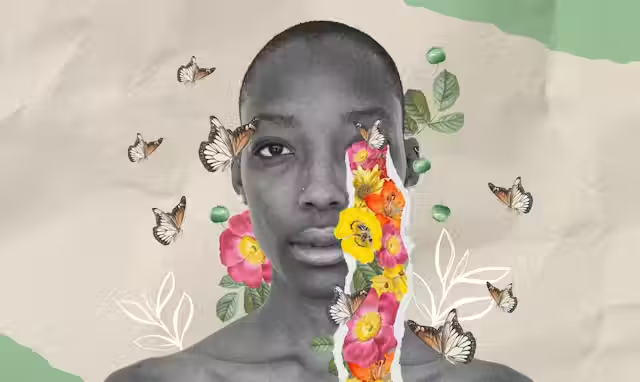Zimbabwe-born, Canada-based Chido Muchemwa’s debut short story collection, Who Will Bury You?, was published late in 2024 and immediately attracted the right kind of attention.
Here was an unexpected range of themes: queer identity, dislocation in the diaspora, the lingering complexities of family and cultural belonging. The 12 stories, set between Zimbabwe and Canada, trace moments of rupture and reconnection across time and geography. And they’re mostly about women. Women, selfhood, loss and love.
Gibson Ncube, who researches queer African fiction, unpacks why it’s such a good read.
What are some of the stories about?
The recurring questions in Who Will Bury You? are: who will remain when we are gone – who will understand us, who will grieve for us, and who will honour the truths we live by? These questions are animated through emotionally layered stories that centre the lives of Zimbabwean women and queer characters.
Written with subtlety and care, some of the stories draw on Zimbabwean folklore, allowing Muchemwa to bridge the mythical and the present-day. She demonstrates how ancestral narratives continue to shape how people experience love, loss and belonging.
The title story introduces a Zimbabwean “church going woman” and her daughter, who is living in Canada and has embraced a lesbian identity. In Zimbabwe, same-sex relationships remain criminalised under laws inherited from colonial rule and reinforced by state-sponsored homophobia. Political leaders often frame queerness as un-African or morally deviant.
The story is told through alternating perspectives and offers a portrait of intergenerational estrangement, cultural friction, and love strained by silence. What one of the characters calls “things that might never feel sayable”. The theme of queerness recurs in several other stories like This Will Break My Mother’s Heart and If It Wasn’t for the Nights.
Muchemwa allows these stories to gather meaning through multiple vantage points. She seems to resist resolution in favour of complexity. The collection is a significant contribution to the small but growing body of Zimbabwean literature that openly addresses queerness.
What’s Muchemwa saying about queer African life?
One of Muchemwa’s most powerful acts in the book is to treat queer life not as peripheral, but as central to the cultural, emotional and political worlds her characters inhabit. Queer desire, intimacy and estrangement are not exceptional disruptions. They are ordinary realities that are woven into everyday life. In these stories, queerness is at once a site of tenderness, conflict and hope. The effects of religion and colonial morality continue to shape how love is expressed and denied.
The stories challenge the erasure of queer voices by positioning them at the heart of families and communities. Queer characters are neither idealised nor victimised. They are allowed to simply be joyful, ambivalent, flawed, and resilient.
Aside from identity, what are some of the other themes?
The book also grapples with questions of memory, history and myth. In Finding Mermaids, Muchemwa blends contemporary reportage with folklore. A journalist and her grieving mother investigate the disappearance of young girls in a rural Zimbabwean town who are suspected to have been captured by njuzu, water spirits.
Other stories, like Kariba Heights and The Captive River, explore the legacies of colonialism and the spiritual power of the Zambezi River. In these stories, Muchemwa is attentive to how land, history and belief have an impact on personal experiences.
Living away from home, in the diaspora, is also a theme. Zimbabwe’s collapsing economy and ongoing political instability have driven many to seek better lives abroad, looking for jobs or educational opportunities.
Characters in Toronto grapple with cultural dislocation. They long for home as they tackle the challenges of forging new forms of kinship abroad. The Toronto that Muchemwa renders is richly textured. It’s far from a generic western backdrop. It is portrayed as a space of possibility and tension in which characters remake themselves in the face of displacement.
Why is it a special book to you as a scholar?
Muchemwa’s prose is precise, controlled, and emotionally resonant. She writes with confidence, trusting the power of implication and delicate shifts in tone. The plots of the stories are simple. They are not driven by dramatic revelations. Rather, by accumulative emotional insight. Her characters often seem to border on the edge of decision or reconciliation. In fact, their silences are as revealing as their speech.
Throughout the collection, there’s a sense of hushed intensity. The question of who will be there – at the end, in crisis, in love – lingers and ties the stories together. Even as her characters move between countries, generations and identities, they remain tied by their desire for recognition and care.
Muchemwa’s debut contributes to a growing body of contemporary African writing that focuses on intimacy, friendship and queerness as legitimate and urgent narrative concerns. Who Will Bury You? offers a fresh take that avoids the clichés and stereotypes often associated with African literature – what Nigerian writer Chimamanda Ngozi Adichie has famously called the single story.
Rather than dwelling on recurrent tropes of suffering or political crisis, Muchemwa’s stories place a spotlight on private lives and emotional entanglements. They compel us to be attentive to the quiet yet consequential turmoil that takes place within families and intimate relationships.
The collection does not avoid the cultural and religious violences that have an impact on everyday life. But Muchemwa faces them through the perspective of those who survive, and remake, these constraints on their own terms.
Who Will Bury You? is a carefully crafted collection that demands close attention. It’s a book about women who refuse to be easily defined. With this collection, Muchemwa asserts herself as a compelling new voice in Zimbabwean and African literature. Her debut represents new African storytelling which continues to expand the narratives of African writers. It dares to centre the personal, the queer, and the emotionally complex.
Gibson Ncube receives funding from the National Research Foundation.
By Gibson Ncube, Senior Lecturer, Stellenbosch University


